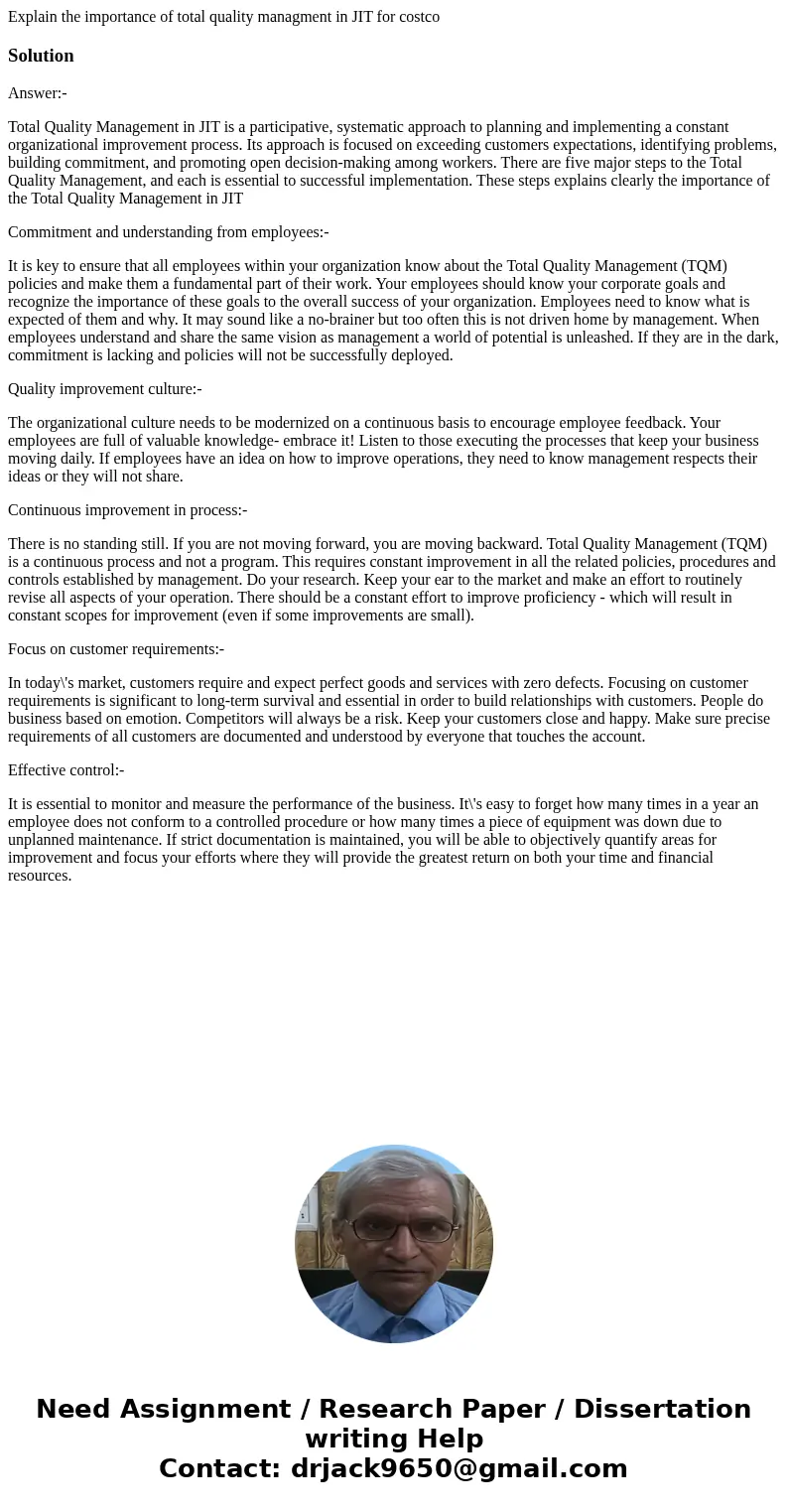Explain the importance of total quality managment in JIT for
Explain the importance of total quality managment in JIT for costco
Solution
Answer:-
Total Quality Management in JIT is a participative, systematic approach to planning and implementing a constant organizational improvement process. Its approach is focused on exceeding customers expectations, identifying problems, building commitment, and promoting open decision-making among workers. There are five major steps to the Total Quality Management, and each is essential to successful implementation. These steps explains clearly the importance of the Total Quality Management in JIT
Commitment and understanding from employees:-
It is key to ensure that all employees within your organization know about the Total Quality Management (TQM) policies and make them a fundamental part of their work. Your employees should know your corporate goals and recognize the importance of these goals to the overall success of your organization. Employees need to know what is expected of them and why. It may sound like a no-brainer but too often this is not driven home by management. When employees understand and share the same vision as management a world of potential is unleashed. If they are in the dark, commitment is lacking and policies will not be successfully deployed.
Quality improvement culture:-
The organizational culture needs to be modernized on a continuous basis to encourage employee feedback. Your employees are full of valuable knowledge- embrace it! Listen to those executing the processes that keep your business moving daily. If employees have an idea on how to improve operations, they need to know management respects their ideas or they will not share.
Continuous improvement in process:-
There is no standing still. If you are not moving forward, you are moving backward. Total Quality Management (TQM) is a continuous process and not a program. This requires constant improvement in all the related policies, procedures and controls established by management. Do your research. Keep your ear to the market and make an effort to routinely revise all aspects of your operation. There should be a constant effort to improve proficiency - which will result in constant scopes for improvement (even if some improvements are small).
Focus on customer requirements:-
In today\'s market, customers require and expect perfect goods and services with zero defects. Focusing on customer requirements is significant to long-term survival and essential in order to build relationships with customers. People do business based on emotion. Competitors will always be a risk. Keep your customers close and happy. Make sure precise requirements of all customers are documented and understood by everyone that touches the account.
Effective control:-
It is essential to monitor and measure the performance of the business. It\'s easy to forget how many times in a year an employee does not conform to a controlled procedure or how many times a piece of equipment was down due to unplanned maintenance. If strict documentation is maintained, you will be able to objectively quantify areas for improvement and focus your efforts where they will provide the greatest return on both your time and financial resources.

 Homework Sourse
Homework Sourse